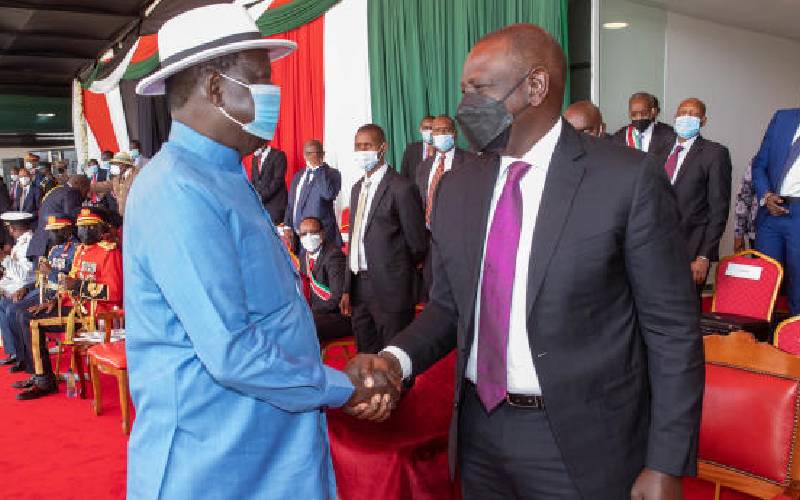×
The Standard e-Paper
Fearless, Trusted News

ODM leader Raila Odinga shakes hands with Deputy President William Ruto in a past event.
We have said it before, but we are forced to say it again – hurling insults is unbecoming of leaders. It is base, it is primitive, and portray the exact opposite of the image one might want to project in their quest for leadership.







